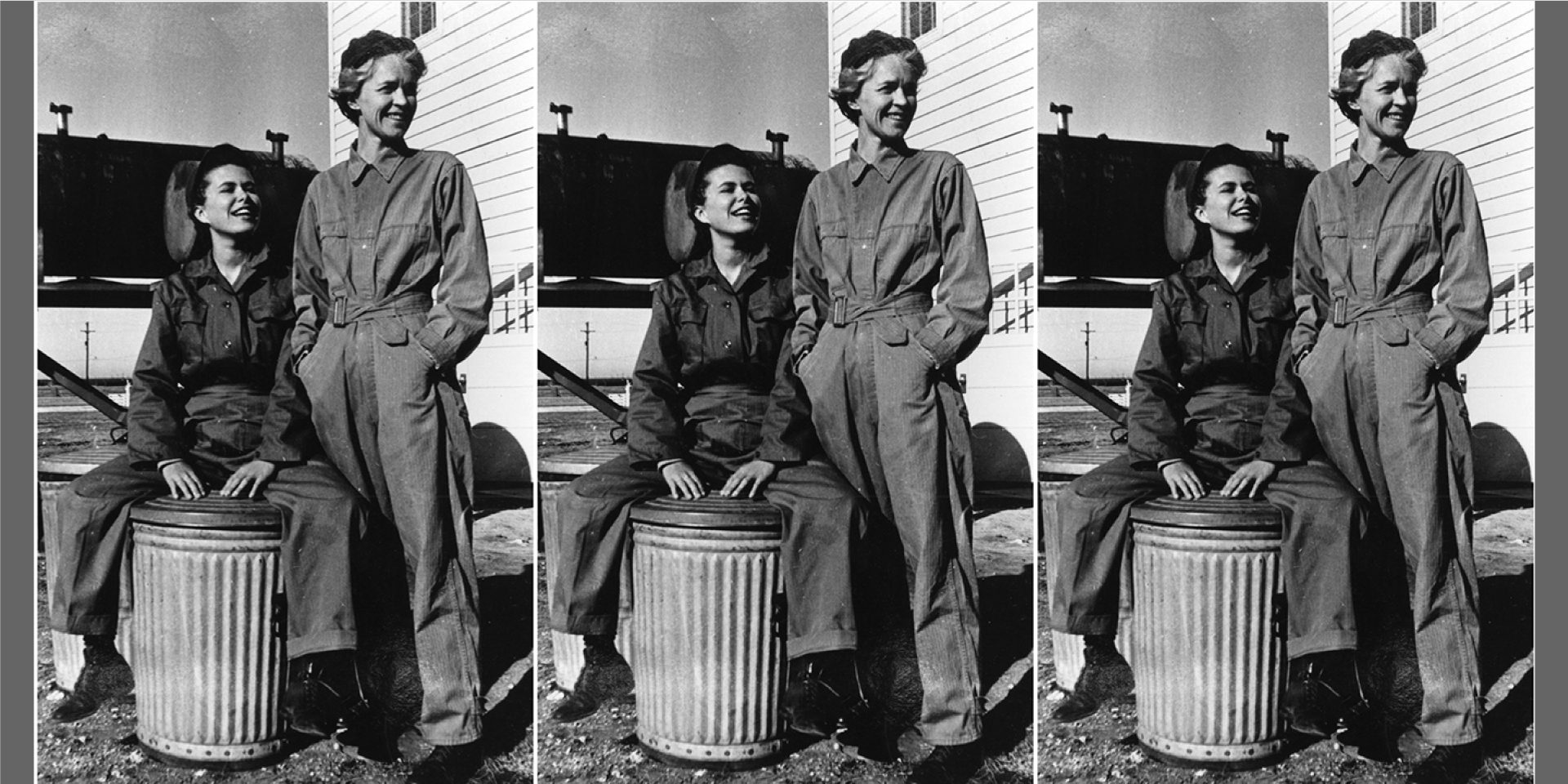Today’s #ForgottenFriday focuses on a woman named Phillis Arby – Lady of the US WAAC during World War Two.
When she was old enough to serve, Abry hid her sexuality during the Women’s Auxiliary Army Corps (WAAC) recruitment process. During examination, one of the questions asked of female recruits was, “Do you have sex with men?” When Abry said that she did not, they asked her why not. “’Well, I was brought up to believe that one didn’t have sex until they were married,’ and that was a perfectly acceptable answer,” she said, in a documentary interview.
Abry started basic training in Des Moines, Iowa. She recalled enjoying wearing a uniform. In a 1995 interview for the documentary Coming Out under Fire, she said “It wasn’t very obvious if you were a little bit butchy. I mean, we were all a little butchy, I guess.” Being in the WAAC helped her meet other lesbians as well.
After basic training, Abry left for the United Radio Television Institute in Newark, N.J., for a radio repair course. It was there that she met fellow WAAC, Mildred. “Over a period of maybe two or three weeks, we finally established that we were both gay and then started a romance,” she said. It was Mildred who arranged for the couple to be sent to South Plains Army Airfield in Lubbock, Texas in July 1943.
In the winter 1944, Abry served as a WAAC recruiter in Santa Fe, N.M. When she and Mildred were later photographed repairing a radio for a WAAC recruiting poster, Abry said she found the experience silly: “They chose us for [recruiting purposes] and here we were lovers.”
Unknown to the Army, when selecting a photograph partner, they also selected Abry’s lover as the other ideal WAAC to be featured together in the propaganda. The irony that the military selected two homosexuals to represent the ideal image of the Women’s Army Auxiliary Corps was not lost on Abry.
For many, World War II marked only the start of life-long struggles with their identity. The systematic purges of bases and units in the US ripped apart the communities and relationships that had been developed over shared sacrifices. Blue discharges followed veterans their entire lives and made them ineligible for all veteran services.
In 1953, President Eisenhower signed Executive Order 10450, that banned homosexuals from federal employment. Over 5,000 federal employees lost their jobs over accusations of homosexuality. These federal discriminatory actions drove LGBTQ+ people further into the shadows of society and emboldened law enforcement and politicians, who sadly became more violent toward gay and lesbian citizens.


